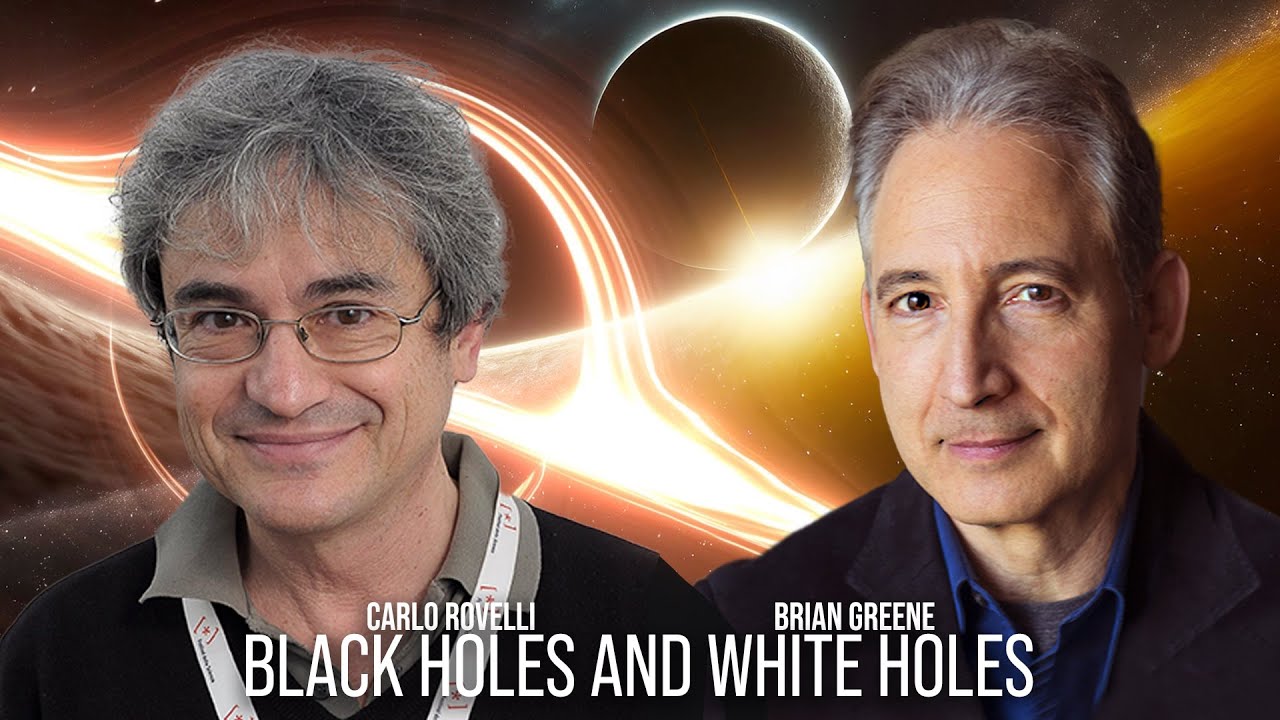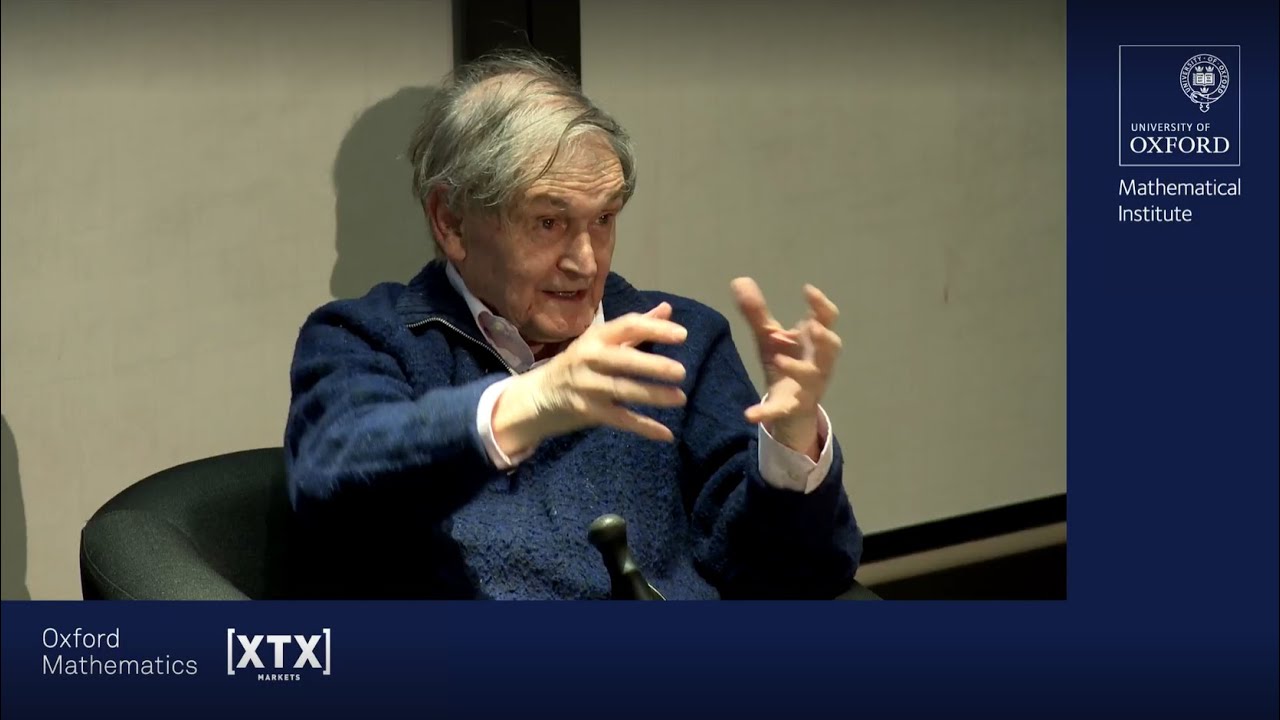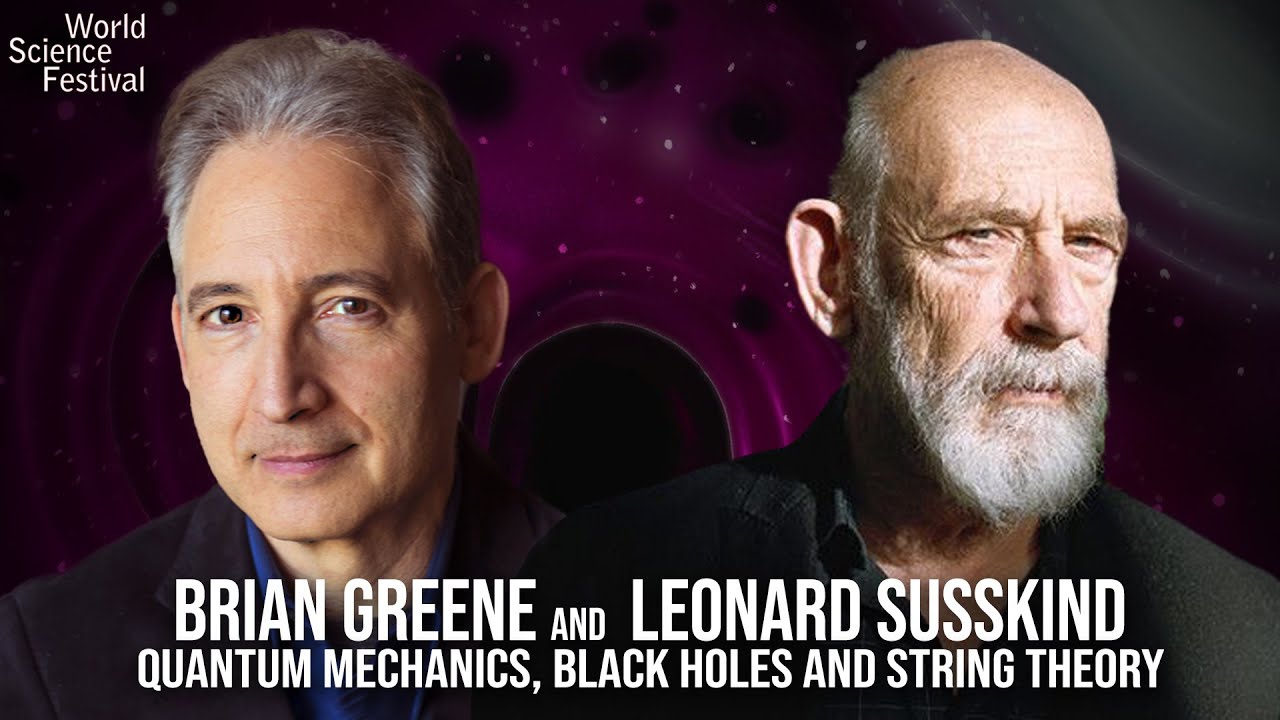Carlo Rovelli: From Dante to White Holes
TLDRIn this Origins podcast episode, host Lawrence Krauss engages in an insightful conversation with renowned physicist Carlo Rovelli. They delve into Rovelli's work on Loop Quantum Gravity, an alternative to String Theory, and its implications for understanding quantum properties of gravity. The discussion also explores Rovelli's latest book, 'White Holes,' where he presents a thought-provoking idea that black holes might transform into white holes, potentially resolving paradoxes like information loss. Throughout the dialogue, Rovelli's passion for intertwining science with literature and art is evident, highlighting the interdisciplinary nature of knowledge. The conversation touches on the importance of questioning established norms, the role of culture in understanding the universe, and the concerns regarding the increasing ideological intrusion into science and academia. The engaging discussion underscores the significance of scientific skepticism and the value of debate in advancing our comprehension of the cosmos.
Takeaways
- 📚 Carlo Rovelli, a renowned physicist, is known for his popular science writing, including the bestseller 'Seven Brief Lessons on Physics'.
- 🌌 Rovelli has a background in Loop quantum gravity, an alternative to string theory, which attempts to address the quantum theory of gravity.
- 💡 His new book, 'White Holes', explores the concept of white holes as a potential solution to the information loss paradox associated with black holes.
- ⚫️ Black holes present various paradoxes, such as the loss of information and the presence of singularities at their centers, which challenge our understanding of physics.
- ⏳ Rovelli draws an analogy between the journey into a black hole and Dante's journey into hell, suggesting that quantum processes might allow for a transformation into a white hole.
- ⚪️ White holes are the time-reversed solutions of black holes in general relativity, where everything comes out instead of falling in.
- 🤔 The idea of white holes is intriguing but remains speculative, with no concrete evidence of their existence or a clear understanding of their origin.
- 🔬 Rovelli's work in physics has been influenced by his love for literature and art, which he often incorporates into his discussions on physics.
- 👴 Rovelli's interest in science developed later in life, after an initial focus on humanities and a period of political activism.
- 🌟 The concept of time is complex and is treated differently in various physical theories, with Rovelli suggesting that time is more fluid and less of a unified flow than commonly perceived.
- ✍️ Rovelli emphasizes the importance of careful use of analogies in science communication, acknowledging their limitations and ensuring they do not mislead.
Q & A
What is the main topic of discussion in the podcast?
-The main topic of discussion is Carlo Rovelli's new book on 'white holes' and the concept of loop quantum gravity, which is an alternative to string theory in the quest for a quantum theory of gravity.
What is Carlo Rovelli's background and how did he get interested in science?
-Carlo Rovelli was born in Verona, Italy, and his academic background was initially in humanities and literature. He developed an interest in science during his university studies where he was particularly fascinated by modern physics.
What is the significance of loop quantum gravity in the context of black holes?
-Loop quantum gravity is significant because it attempts to address the problems and paradoxes associated with developing a quantum theory of gravity, which is particularly relevant for understanding the nature of black holes and the information paradox.
How does Rovelli's idea of white holes potentially resolve the information loss problem associated with black holes?
-Rovelli suggests that near the singularity of a black hole, quantum processes might turn a black hole into a white hole, which could potentially resolve the information loss problem by allowing information to escape.
What is the relationship between Rovelli's scientific work and his interest in literature and art?
-Rovelli often introduces ideas from literature and art into his discussions of physics, believing that these disciplines can provide unique perspectives and insights into scientific concepts.
How does Rovelli's personal journey reflect the interdisciplinary nature of his work?
-Rovelli's journey from being politically active and involved in student revolts to falling in love with science demonstrates his interdisciplinary approach. His work in physics is also characterized by drawing from and integrating concepts from philosophy, literature, and art.
What are the key differences between loop quantum gravity and string theory?
-Loop quantum gravity is less ambitious than string theory, focusing specifically on understanding the quantum properties of gravity. String theory, on the other hand, aims to unify all forces and particles into a single theory. Additionally, loop quantum gravity has had fewer researchers and resources dedicated to it compared to string theory.
Why did Rovelli decide to move to the United States?
-Rovelli moved to the United States after being offered a faculty position at the University of Pittsburgh. The opportunity represented a significant career transition for him from being a solitary researcher to an American Professor with credibility and a more established position.
What are the challenges faced by loop quantum gravity in terms of theoretical development and empirical verification?
-Theoretical challenges include the complexity of calculations within the framework of loop quantum gravity. Empirically, the theory struggles with connecting to observable phenomena, as quantum gravity effects are often hidden in the details and the phenomena where they might be relevant, such as the Big Bang or black holes, are difficult to study directly.
How does Rovelli's view on the concept of time in quantum gravity?
-Rovelli views time as a layered concept with different properties at different levels of physical description. At the most fundamental level of quantum gravity, there is no variable T representing time as we understand it. Instead, temporality is more fluid, local, and complex, with the familiar flow of time emerging only in specific contexts.
What is the role of philosophy in Rovelli's scientific work?
-Philosophy plays a significant role in Rovelli's work as he often engages with philosophical concepts and ideas. He has also collaborated with philosophers and has written on the philosophy of physics, indicating an interdisciplinary approach to understanding the nature of reality.
Outlines
📚 Introduction to Carlo Rovelli and His Work
Lawrence Krauss introduces Carlo Rovelli, a renowned physicist known for his popular science writing, including his book 'Seven Brief Lessons on Physics.' They discuss Rovelli's background, his interest in combining physics with literature and art, and his work on loop quantum gravity as an alternative to string theory. The conversation also teases the topic of white holes, which Rovelli explores in his new book.
🌍 Carlo's Early Life and Interests
Carlo Rovelli shares his early life experiences, including his birth in Verona, Italy, and his parents' professions. He discusses how his interest in science was piqued later in life, during his university studies, and how his initial focus on humanities and literature influenced his scientific pursuits. The paragraph also touches on Rovelli's political interests and his first book, which was about a student revolt in Italy.
📚 The Journey to Physics and Writing
Rovelli describes his transition from humanities to physics and how he became engrossed in modern physics during his graduate studies. He also talks about his writing journey, which began as a form of personal expression and later turned into a career of writing for newspapers and books. His writing often includes references to Dante and other literary figures.
🌌 The Development of Loop Quantum Gravity
The conversation delves into the specifics of loop quantum gravity, a theory Rovelli has contributed to, which attempts to reconcile quantum mechanics with general relativity. Rovelli discusses his academic journey, including his time in Italy and the United States, and the evolution of his ideas in the field of quantum gravity.
🕳️ Black Holes, White Holes, and Quantum Gravity
Rovelli and Krauss explore the concept of black holes and the information paradox, where information appears to be lost when objects fall into black holes, contradicting quantum mechanics. Rovelli introduces his idea that black holes might transform into white holes via quantum processes, potentially resolving the information paradox and offering a new perspective on the nature of space and time.
🤔 Theoretical Challenges and Real-world Applications
The discussion addresses the theoretical and practical challenges in applying loop quantum gravity to real-world phenomena such as the Big Bang and black holes. Rovelli acknowledges the difficulties in testing the theory and the need for further research to connect the theory to observable reality.
⏳ The Nature of Time and Its Perception
Carlo Rovelli reflects on the concept of time, its perception, and its role in physics. He discusses how time is a composite notion with different attributes in everyday life versus in physics, where it behaves differently, especially in quantum gravity. Rovelli suggests that time is not a fundamental concept in quantum gravity equations, indicating a complex and layered understanding of temporality.
🌞 Departures from Equilibrium and the Arrow of Time
Rovelli elaborates on the idea that the distinction between past and future arises from thermodynamics and departures from equilibrium. He argues that without such departures, there would be no memory or experience of events, and thus no sense of time's arrow. The conversation touches on the relationship between entropy, time, and the possibility of lower entropy in the future.
🤔 The Free Will Debate and Its Implications
The dialogue explores the concept of free will, with Rovelli suggesting that while we may have an illusion of free will at macroscopic scales, at the microscopic level, determinism prevails. The discussion also includes a critique of the concept of free will, aligning with the philosophical stance that free will may not exist.
🌐 The Intersection of Science, Art, and Politics
Carlo Rovelli and Lawrence Krauss discuss the intersection of science with art and politics. Rovelli emphasizes the importance of being an outsider and the role of rebellion in science and education. They also address the intrusion of politics into science and the importance of maintaining freedom of speech and inquiry in academic and scientific communities.
Mindmap
Keywords
💡Black Holes
💡White Holes
💡Loop Quantum Gravity
💡Information Loss Paradox
💡Quantum Mechanics
💡General Relativity
💡Cosmological Constant
💡String Theory
💡Time Dilation
💡Entropy
💡Event Horizon
Highlights
Carlo Rovelli, renowned for his popular science writing, discusses his new book 'White Holes' and its exploration of theoretical physics concepts.
Rovelli's work often integrates ideas from literature and art, bringing a unique perspective to complex discussions in physics.
The conversation delves into Loop quantum gravity, an alternative to string theory, which Rovelli has contributed to and its current status in the field.
Rovelli shares his early life experiences, including his interest in science, literature, and politics, and how these influenced his career.
The discussion addresses the concept of black holes and the paradoxes they present in physics, including the information loss problem.
Rovelli imagines a scenario where black holes could transform into white holes, potentially resolving some of the issues associated with black hole collapse and information loss.
The podcast explores the philosophical aspects of science, questioning the nature of time and the direction of time's flow.
Rovelli's journey from being a rebellious scientist to a celebrated author reflects his unique path in both science and science communication.
The conversation touches on the cultural and societal impacts of science, emphasizing the importance of open dialogue and questioning.
Rovelli and the host debate the concept of time reversal in the context of black holes and the potential for white holes to exist.
The discussion highlights the challenges in predicting verifiable consequences in both Loop quantum gravity and string theory.
Rovelli's skepticism about certain aspects of black hole physics leads to a thought-provoking debate on the nature of information in quantum mechanics.
The podcast concludes with thoughts on the importance of interdisciplinary approaches to understanding the universe and the role of art and literature in science.
Rovelli emphasizes the need for continued questioning and provoking in science, as well as the potential dangers of ideological intrusion into scientific discourse.
The conversation underscores the value of scientific communication in enriching the public's understanding of complex scientific ideas.
Rovelli's and the host's shared concern about the potential for censorship and the importance of freedom of speech in both science and academia.
The dialogue encapsulates the dynamic exchange between two physicists with differing views, highlighting the iterative nature of scientific progress.
Transcripts
Browse More Related Video

Carlo Rovelli: The Man Expanding Our Understanding of the Universe | UNFILTERED

Carlo Rovelli: Loop Quantum Gravity, 7 Brief Lessons on Physics & The Order of Time (122)

Carlo Rovelli and Brian Greene on Black Holes and White Holes

Envisioning Imagination - Roger Penrose, Carlo Rovelli and Conrad Shawcross with Fatos Ustek

Carlo Rovelli presents Anaximander and the Nature of Science

Brian Greene and Leonard Susskind: Quantum Mechanics, Black Holes and String Theory
5.0 / 5 (0 votes)
Thanks for rating: